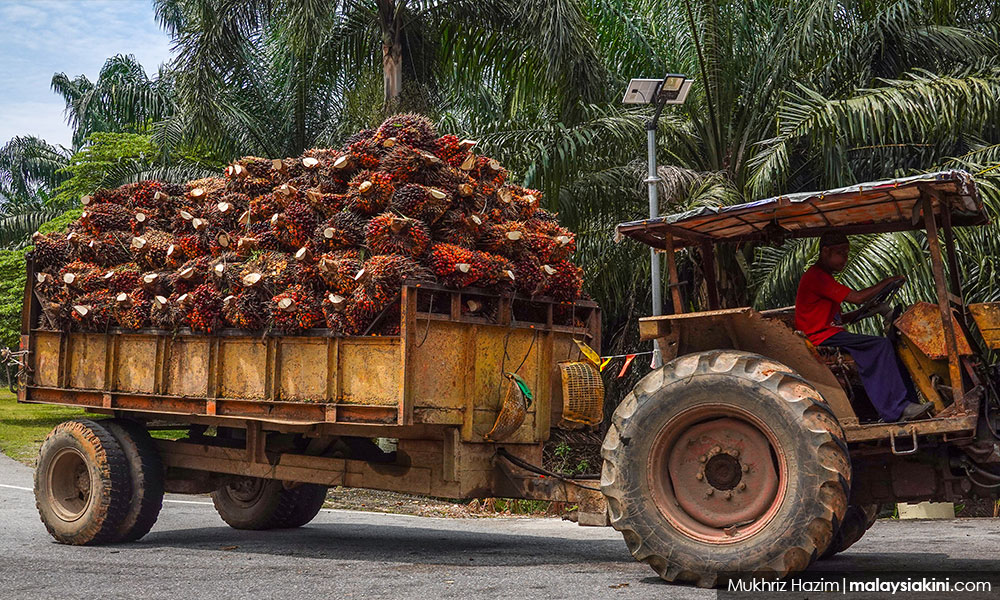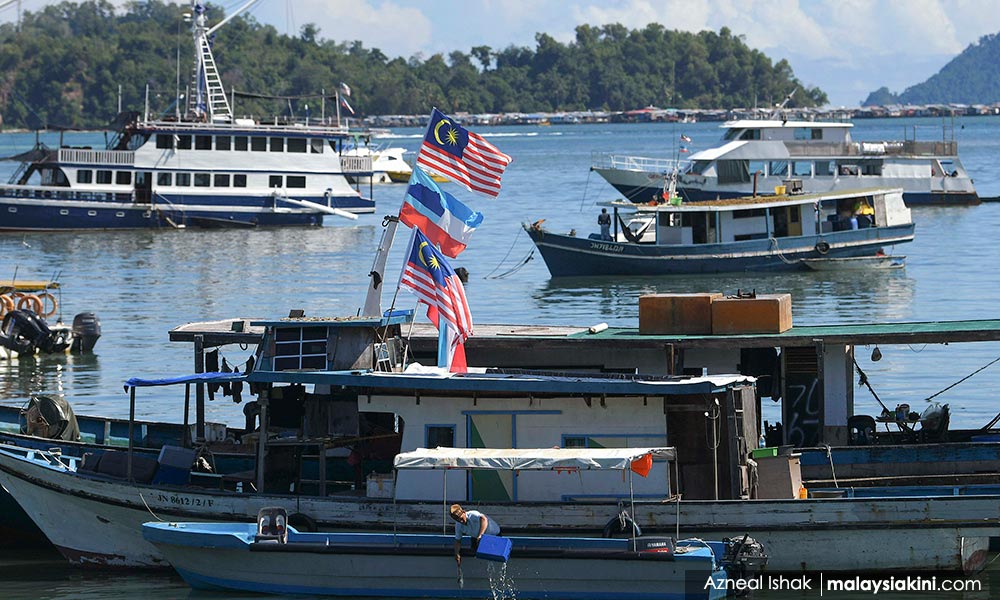MP SPEAKS | At the 33rd Palm and Lauric Oils Price Outlook Conference (POC) 2022 held in Kuala Lumpur recently, nine speakers predicted that crude palm oil (CPO) price will trade between RM4,000 and RM9,427 per tonne.
This is after taking into account the Russia-Ukraine war that has blocked off sunflower oil's trade from the Black Sea region (Russia and Ukraine account for 75 percent of global exports of sunflower oil in 2021), weaker production prospects for corn and soybean in South America, and the recent move by the Indonesian government to expand export licencing requirements for all palm oil products to prioritise the availability of domestic cooking oil.
Plantation Industries and Commodities Minister Zuraida Kamaruddin even made a bolder prediction that CPO prices are expected to continue to rise at least until the third quarter of 2022 and are projected to reach RM9,300 a tonne.
The minister further states that the federal government’s collection of a windfall tax on palm oil is expected to exceed RM1 billion in 2022.
Last year, Parliament has approved the Windfall Profit Levy (Amendment) Bill 2020 to amend the Windfall Profit Levy Act 1998 (Act 592), and via this amendment, palm oil producers are subject to a three percent levy when crude palm oil prices exceed RM3,000 per tonne in Peninsular Malaysia and when prices surpass RM3,500 per tonne in Sabah and Sarawak.
Focusing on Sabah alone, it is certainly interesting to calculate and estimate how much will Sabah be contributing to the federal government in CPO windfall tax in 2022. Let’s take the most conservative prediction of RM4,000 per tonne.

Second-largest palm-oil producer
According to WWF, Sabah produced about five million tonnes of CPO in 2020, making it the second-largest palm oil-producing state in Malaysia.
Let say CPO price remains above RM 4,000 per tonne throughout 2022 and that the output remains the same at five million tonnes, then three percent windfall tax collected from Sabah alone will be RM600 million at the very least in 2022.
Given the rising trend now, it’s certainly safe to estimate a collection of RM600 million at the very least from Sabah for 2022 if the price remains averaged at RM4,000 per tonne throughout 2022.
The first and second quarters of 2022 will certainly see a higher contribution as the prices are hovering above RM7,000 now.
As Sabah is the second-largest palm oil producing state in Malaysia, why can’t the people of Sabah benefit from the lion’s share on our own CPO windfall tax?
Recently, the Sabah government has been squeezing our local businesses with the imposition of sales tax on industries such as seafood and scrap metal industries. I am not denying that Sabah has the power to collect sales tax according to the Federal Constitution.
More fiscal decentralisation
However, with the windfall tax, the question would be then why are we not focusing on pushing for more fiscal decentralisation from the federal government to the Sabah government instead?
I am of the view that decentralisation of the powers to collect CPO windfall tax from the federal government to the Sabah government is the way out and to resolve Sabah’s acute problems of hurting its local businesses by imposing more sales tax on these businesses.
The Sabah government should think out of the box - instead of hurting and eating into the profits of Sabahan businesses by imposing sales tax, wouldn’t it be better to demand payment of such “windfall” money from the Federal Government?
According to Sabah Science, Technology and Innovation Minister Yakub Khan, the unemployment rate in Sabah was at eight percent in 2020 and climbed to nine percent in 2021. However, businesses in Sabah have indicated that they are not ready for RM1,500 minimum wage adjustment.
Sabah should use our resources to tackle our problem. We never ask for more. Here, I am of the view that this RM600 million ought to be utilised in solving the high unemployment rate in Sabah and minimum wage issues together. Kill two birds with one stone.
Spent exclusively on Sabahans
In any event, the Federal Constitution clearly states that 40 percent of the net revenue derived from Sabah has to be returned to Sabah.

Forty percent net revenue sharing is our forefather’s visionary fiscal decentralisation. In the circumstances, it is only right that the federal government, at the very least, have 40 percent of the RM600 million (RM240 million) be spent exclusively on Sabahans.
I would like to urge the federal government to spend part of the RM240million as a wage subsidy to cushion and assist all employers in Sabah with the increase in minimum wages to RM1,500.
For example, employers in Sabah continue to pay RM1,200 and the federal government top-up RM300 in the employees’ EPF Account 3 which can be withdrawn anytime.
RM300 per month (or RM3,600 per annum) per employee is not a huge sum when compared with the RM240 million supposed to be paid to Sabah.
CHAN FOONG HIN is Kota Kinabalu MP and DAP spokesperson on Sabah Affairs.
The views expressed here are those of the author/contributor and do not necessarily represent the views of Malaysiakini.

